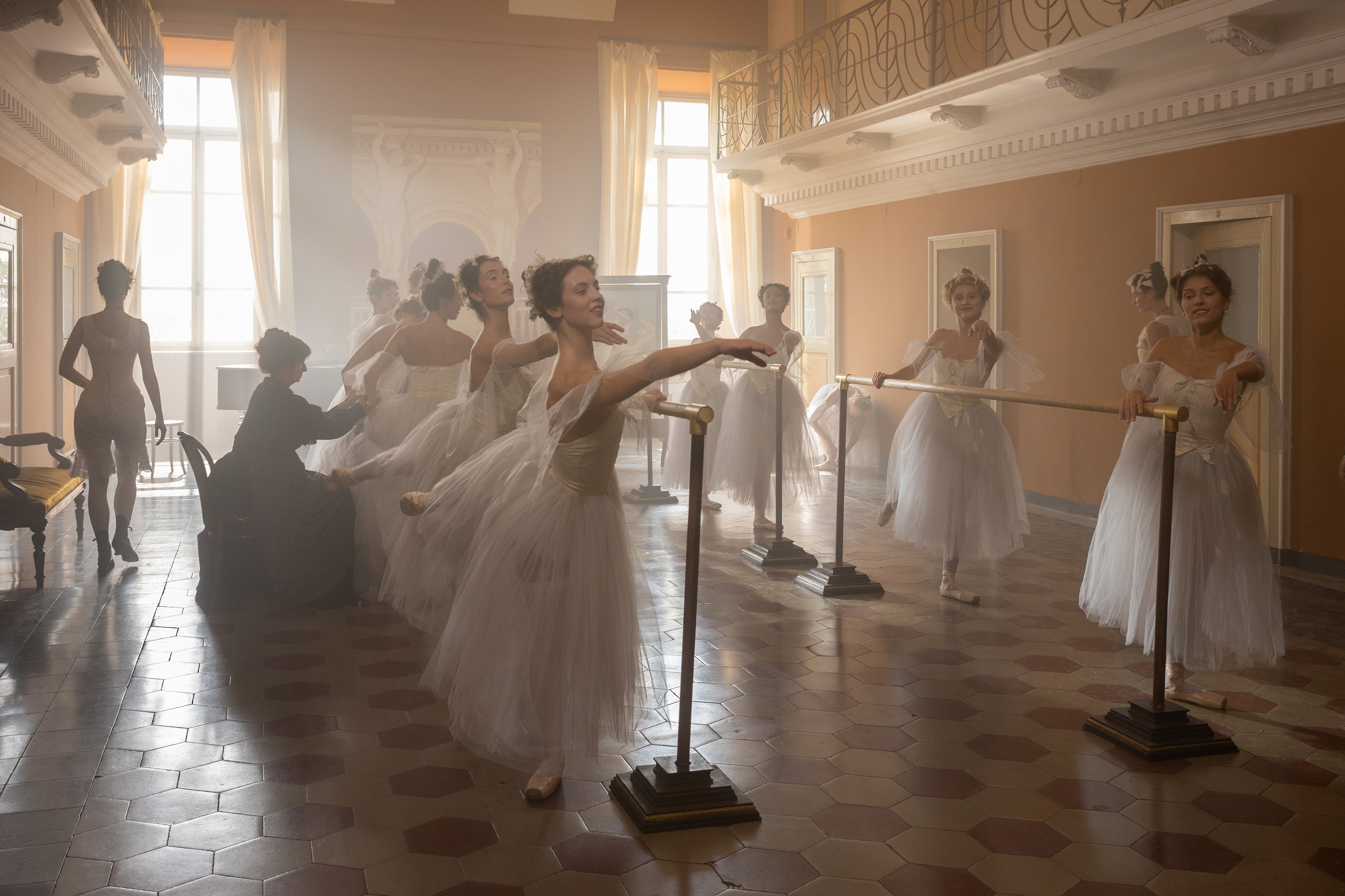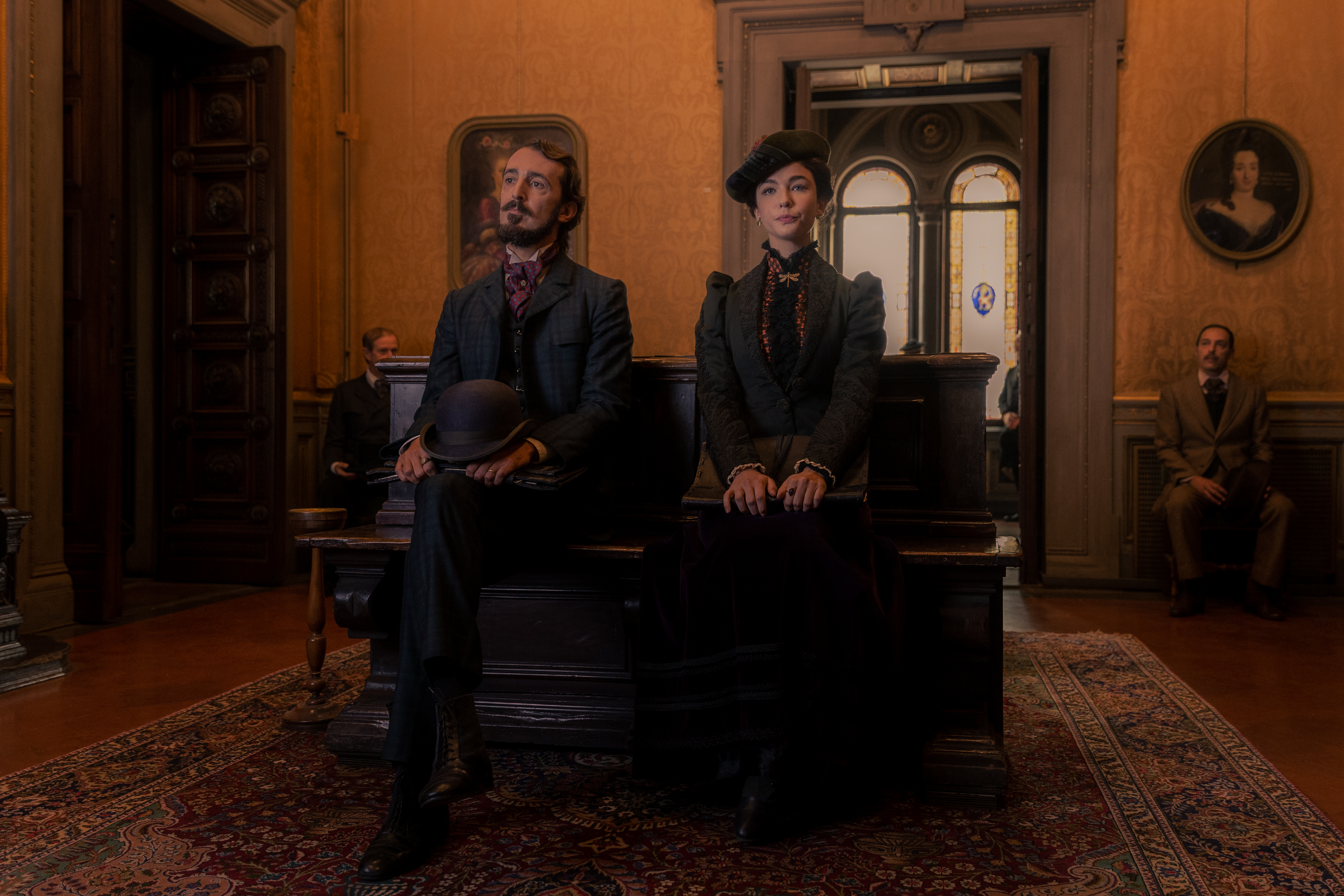What to Watch Verdict
The Law According to Lidia Poët is a wonderful portrait of Italy's first lawyer and will hopefully educate a wider audience about who she was.
Pros
- +
Matilda De Angelis gives a fantastic lead performance
- +
Self-contained cases make it very bingeable
- +
It's a must-watch for period drama and crime fans alike
Cons
- -
The rock soundtrack may be a bit jarring at first, especially if you were expecting more classical scores
The Law According to Lidia Poët is a six-part Netflix drama which is based on the life of Italy's first female lawyer, who went on to be a key figure in the movement to allow women to practice law.
There's quite a chilling opening to Netflix's latest period drama, as a beautiful ballet performance turns ugly when the prima ballerina is found dead in a box backstage, prompting several questions. How long has she been there for, and how did she end up dead?
We're then introduced to Lidia Poët (Matilda De Angelis) who doesn't embody the typical lawyer stereotype at face value. She lives in a rented room, is behind on her rent, and sneaks her lover into her room via the window. Despite her less than ideal living situations, she's fiercely determined, as there are various legal reading materials scattered about her room, and it's immediately clear this is where her passions lie.
Lidia has graduated and passed her legal examinations, however, due to her being a woman she is not viewed in the same way as her male counterparts, and works for her brother Enrico (Pierluigi Pasino), who owns a law firm. She is also trying to overturn the court ruling that prevents her from practicing law properly.
Her landlady arrives with another woman, who is there to see Lidia and request her services as a lawyer, not because she respects her but because her "fees are low". It's Turin and the year is 1883 so a woman offering legal services isn't exactly commonplace.

The woman tells Lidia that her son has been arrested and she needs help, as he has been accused of murdering the dancer we saw at the beginning of the episode. She claims her son is innocent, and Lidia immediately gets to work. This is the first of many legal cases we see Lidia take on throughout the series.
Murder investigations are hard enough as it is, but Lidia encounters obstacles everywhere she goes. From prison guards sneering at the fact she's a lawyer to prisoners leering over her in a similar vein to Clarice Starling in The Silence of the Lambs, to the devastating cancellation of her Bar licence, it's uncomfortable to watch how she's treated by those around her.
The latest updates, reviews and unmissable series to watch and more!
It's hard not to be immediately captivated by Matilda De Angelis who gives a brilliant performance as Lidia, who is confident, headstrong and willing to put people in her place. She stands out among other women of the time and this feels like a wonderful tribute to the woman herself and what she stood for. Watching this series, you're on Lidia's side all the way.
The series also sheds an important light on a historical figure who may have been overlooked, so it's refreshing to see Netflix focusing on such an influential person. The real Lidia Poët accomplished so much in her lifetime, and for some of us, this is the first time we've ever heard of her.
There's plenty of banter between Enrico and Lidia, as the two are pretty cutthroat but clearly have a mutual respect for each other deep down. Enrico is pretty adamant that her career will never be successful but helps her anyway, and the tricky dynamic between the two main characters is enjoyable to watch, even if it is a little frustrating at times.

Lidia clashes with other women around her, particularly her sister-in-law Teresa (Sara Lazzaro) who is much more traditional and even tells her "if God wanted you to be a lawyer, he wouldn't have made you a woman", which is a cutting comment in Lidia's eyes.
Aesthetically, The Law According to Lidia Poët is beautiful to look at and will certainly appeal to fans of period drama in general due to its gorgeous costume design and its 19th century Turin backdrop, filled with period features, beautiful houses, and plenty of Italian sunshine.
At only six episodes in length it's a great bingeable series too, with a different case each time. There's a lot of variety in the cases too from an anarchist accused of murder to a post-death seance, so if you're a fan of episodic crime dramas this is one for you.
The only real downside is the choice to use a rock-heavy soundtrack as it feels a little out of place given the era it's set in, so this might leave audiences feeling divided.
In the first episode, Lidia is called a "travesty" due to the fact she's a woman aspiring to be a lawyer. But the real travesty is that her story hasn't really been explored until now, and we should all know Lidia Poët's name.

Lucy joined the WhatToWatch.com team in 2021, where she writes series guides for must-watch programmes, reviews and the latest TV news. Now she works for our sister site TechRadar in the same role. Originally from Northumberland, she graduated from Oxford Brookes University with a degree in Film Studies and moved to London to begin a career writing about entertainment.
She is a Rotten Tomatoes approved film critic and has a huge passion for cinema. She especially loves horror, thriller and anything crime-related. Her favourite TV programmes include Inside No 9, American Horror Story, Stranger Things and Black Mirror but she is also partial to a quiz show or a bit of Say Yes to the Dress!

